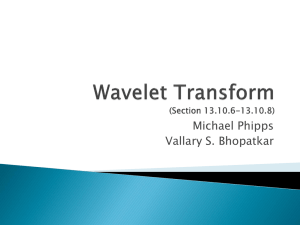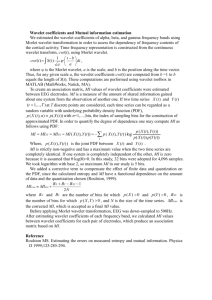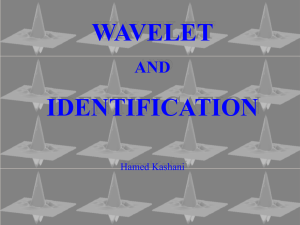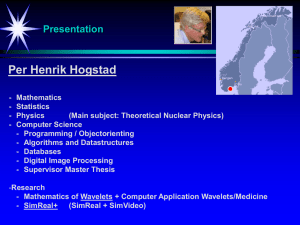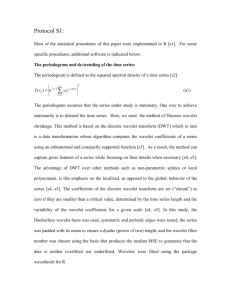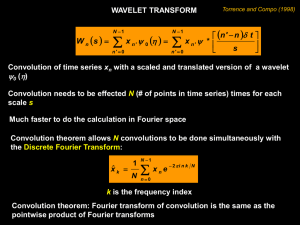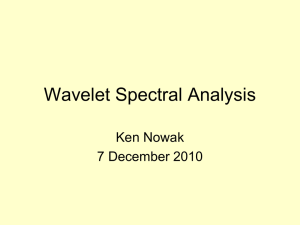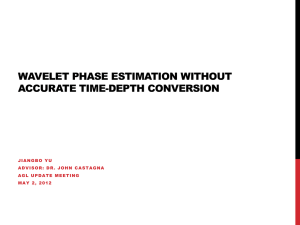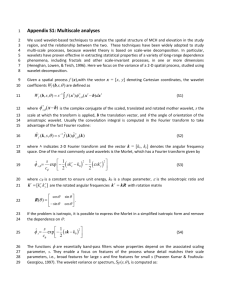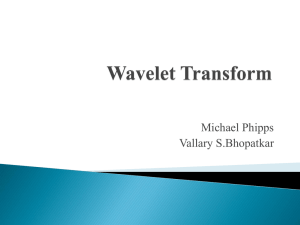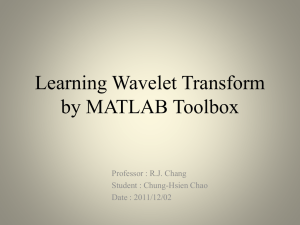Final Presentation
advertisement
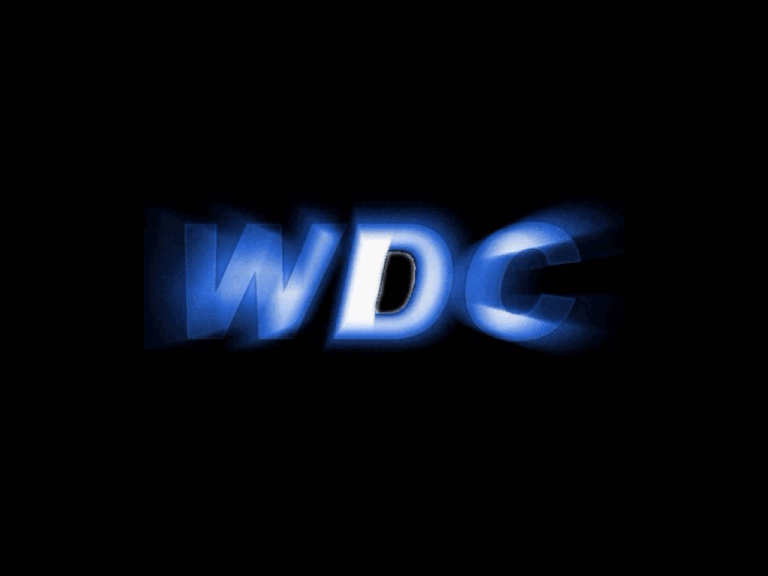
Wavelet Analysis of Cockpit Voice Recorder Data Project Responsibilities Team Leader Digitize CVR Data, Develop Test Signals Project Responsibilities Code Developer Develop Wavelet source code Project Responsibilities Research Research Wavelet Theory Overview •Project Background •CVR Basics & Recording •Theory •Wavelet Parameters •Silent Track Analysis Project Background 1991 Beech 1900C Twin Turboprop Accident Project Background Accident Location Project Background •Right engine mount failed •Engine separated and struck empennage •Aircraft broke apart in flight •Recovered CVR with last 30 min of audio Engine Mount Location Accident Animation Project Goals • Digitize CVR recording • Isolate tube failure location • Develop Wavelet analysis program • Perform Wavelet Analysis on CVR data Digitize CVR Data CVR Transcript and Tape 2146:29 INT-2 ah once your established inbound right you're good to what? Catastrophic Event 2146:34 INT-1 oh #. 2146:34 CAM ((sound of altitude alert chime)) 2146:35 INT-2 stop one thing at a time. you're in a bad situation so correct one thing first. Goldwave Analysis Goldwave is a digital audio editing program. Goldwave Analysis Windowed Fourier Transform Goldwave Analysis Windowed Fourier Results Event Turbines Propeller Blade Passage CVR Noise Frequency (Hz) 5400 & 10300 105 400 These frequencies match those found by past research. Goldwave Analysis Final portion of CVR recording Integral Transformation Theory What is it? Transforms a function from one space to another depending on the transfer function. The Fourier Transform Signal processing tool that takes a signal and tells us what frequencies are within that signal. The Wavelet Transform Determines the frequency spectrum as a function of time. Morlet Wavelet Equations Morlet Wavelet Scaling/Translation Function Wavelet Transform Triboelectric Effect • Frictional motion creates static electricity • Aircraft wires vibrate during flight • Vibrations generate static electricity • CVR records static electricity Develop Wavelet Computer Code • Obtained existing Wavelet code from C. Torrence and G. Compo • Created interface allowing use of Wavelet code • Experimented with effect of input parameters Important Input Parameters Transform Parameters: • Wo – Effects Wavelet width • dj – Effects scale width • mother – Type of Wavelet Scale Parameters: • J1 – # of Scales • So – Base Scale An Example Fourier Analysis Wavelet Analysis of Test Signal Morlet Wavelet Wo Wo == 6 Wo= 24 24 dj = .25 dj = .25 dj = .025 Wavelet Analysis of Test Signal DOG Wavelet m=2 dj = .025 Wavelet Display Test Morlet Wavelet Wo = 6 dj = .125 Wavelet Code Improvements • Scale Parameter Equations • Minimum Scale Size • Maximum Wavenumber • Beat Phenomenon • Edge Effects and Tone Width Scale Parameter Equations Base Scale Size Number of Scales Minimum Scale Size Maximum Wavenumber 5 Hz Test Tone Beat Phenomenon 50 Hz & 52 Hz Tones Wavelet Analysis 4p Propeller Mode Wavelet Analysis Right Engine Turbine Future Work • Continue verifying code consistency • Obtain controlled triboelectric test data • Investigate other crash explanations Acknowledgements •Dr. Ronald Stearman •Pete Moss – UT School of Music •Chris Garland •Javier Fuentealba •Marcus Kruger Questions
